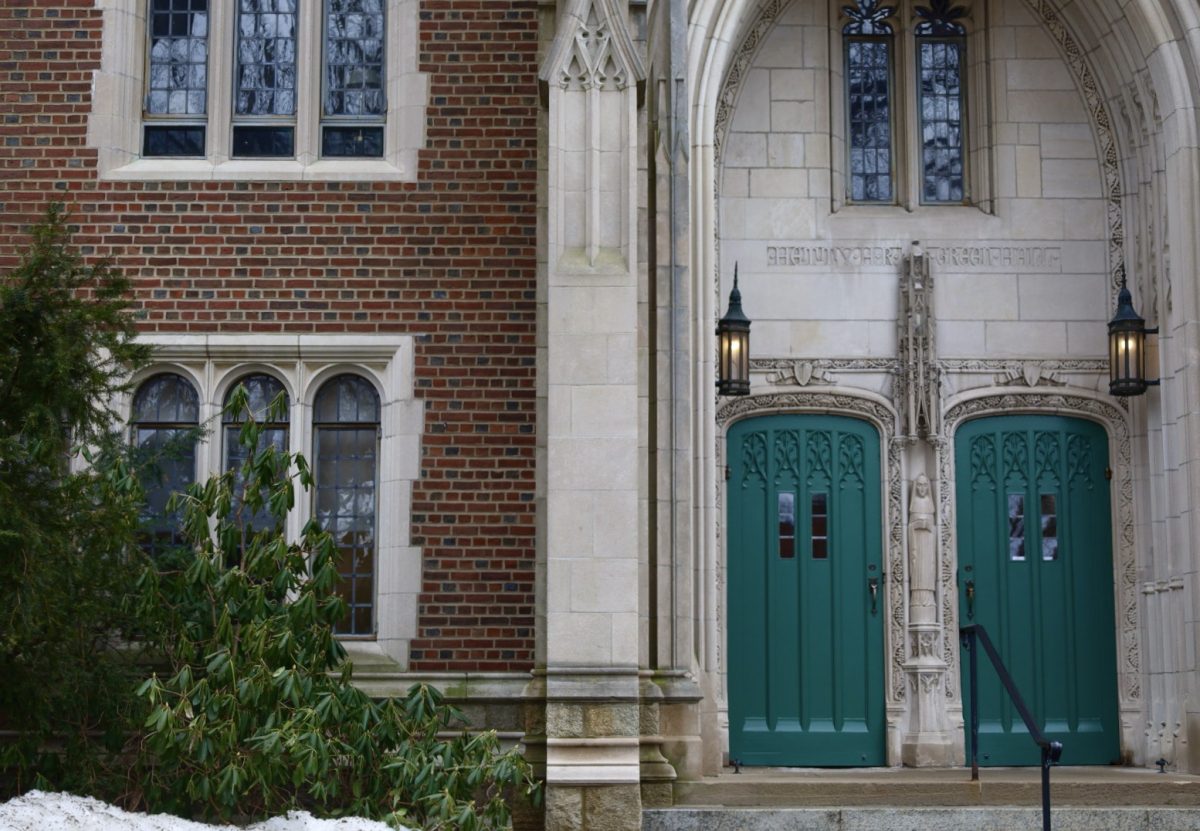This past week at Senate, Honor Code Council Representatives Emy Urban ’18 and Charlotte Harris ’16 presented a new policy for how organizations are charged with Honor Code Violations. The Honor Code Council and College Government’s Student Organizations and Appointments Committee (SOAC) have been working on this new protocol for the past year, and it should go into effect this coming fall.
The reason for this change in policy is there was never a clear precedent for charging campus organizations in the past. Also, cases against organizations are exceedingly rare. There were only about three last year. “We were basically realizing there wasn’t a really good policy or method to deal with these kinds of violations,” Urban commented.
Although Honor Code violations by organizations are rare, there have been problems in the past with unconstituted organizations “piggybacking” off constituted organizations and using their name to book space on 25Live. This had led to problems in the past if damage was done to the space by the unconstituted organization. Since the space was not under the perpetrator’s name, the constituted organization would be held responsible for the damages. Urban advises unconstituted organizations to open a profits account through the Student Bursar’s Office to book space. Although they cannot receive Student Organizations
Funding Committee (SOFC) money, they can use the profits account to book space. Also, they would now be accountable if damage were to occur at the space of the event.
According to Urban and Harris during their Senate presentation, the hearing for an organization would go as follows: The organization would be charged and the Chief Justice along with Don Leach, the faculty member of Honor Code Council, would decide whether or not the case is hearable. Once that is decided, a representative from the organization would have to attend a hearing. The presenters wanted to emphasize that the representative present at the hearing is merely a placeholder for the organization. The hearing would not go on their personal record. Students would also not have to say they were charged with an academic or Honor Code Violation when applying for graduate school.
“We want to make it really clear that the sanctions are not going against the representative. The representative is simply there as a stand-in, and the sanctions aren’t against them. It doesn’t go on the record of the representative. It’s just, we need a body there at the hearing,” Urban said.
After the hearing, sanctions will be placed on the organization depending on the severity of the infraction. However, it has been difficult to sanction charged organizations especially if the organization is unconstituted.
“It’s difficult because we don’t really have control over unconstituted organizations because they do not get SOFC money,” Urban said.
Since unconstituted organizations do not receive SOFC funding, the only thing that Honor Code Council can do is delay the organization from becoming constituted or make them reapply to become constituted. A constituted organization, however, can be asked to make a public apology, banned from using 25Live or banned from recruiting for a number of semesters depending on the severity of the violation.
Harris wanted to make clear that the new policy is available as a frequently asked question sheet that should be accessible and clear.
“We worked on putting together a Frequently Asked Questions to have this information on all one sheet, so that it’s more clear,” Harris remarked during the Senate presentation.
One of the main concerns for students at Senate was whether an infraction committed by an organization would be put on the record of the students in the organization. The presenters made it clear that the infraction would only be on the record of the organization and students would be charged separately if the situation presented itself.
If after the organization was found innocent, there was enough information to charge an individual, the Honor Code Council would hold another hearing against the individual.
“We don’t want to sanction an entire organization for one person’s actions,” Urban said. The new policy will be introduced at Honor Code Council training in the fall.
Rachel Cummings ‘19, a core member of the unconstituted Wellesley Students For Hillary, is unsure about whether this new policy will help uphold the Honor Code.
“It doesn’t make sense to have it on an org’s record. I don’t think charging orgs would incentivize people to stop breaking the Honor Code. It’s kind of an easy way out.”
On the other hand, Jordan Dervishian ‘19, an e-board member of Active Minds, is glad that Honor Code Council is being more transparent with its policies.
“I think it’s really important that The Honor Code Council is making efforts to be as transparent as they can about how the Honor Code applies to organizations and the consequences of an organization being charged with an Honor Code Violation,” Dervishian said.
Photo courtesy of Wellesley College






